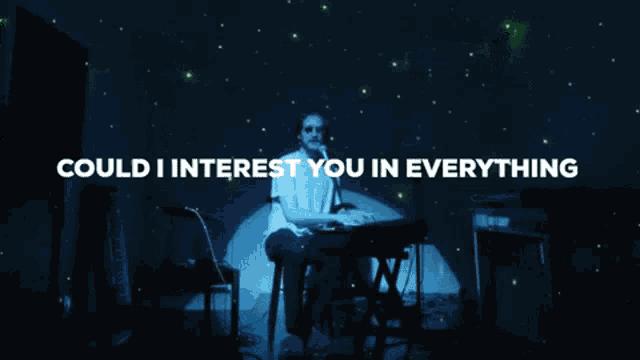In an era of endless content quite literally at our fingertips, how do we discern what's not knowledge? To quote Bo Burnham's song, Welcome to the Internet, the internet is "a little bit of everything all of the time." There are millions of exchanges happening online at any given time and we cannot possibly fact-check or ensure that everything available isn't misleading or malicious. To cut to the chase, what really is knowledge? How does something get labeled as knowledge?
For me, I would consider knowledge to be anything that gives a person insight on a certain issue that is occurring that can be proved in a tangible way. While this seems very textbook-sounding, I believe that considering information with no ill-intent as knowledge can lead to many loopholes or is too vague a statement to properly distinguish between knowledge and information. Knowledge, for me, can also be statements that provide positive and meaningful contributions to any exchange being done through the internet.
With this personal definition of knowledge though, the more common type of exchange on the internet that is hostile or emotionally driven could be easily dismissed. A lot of relevant topics in the present just so happen to be the ones that may cause an easier emotional response rather than meaningful replies; alongside these relevant topics is an unavoidable situation where the internet may be the only means someone has to communicate with another person, thus leaving them more vulnerable to whatever convenient or suspiciously simple solution is offered online. Conspiracy theories and false information are unfortunately more prevalent than ever due to the rise of convenient social media platforms and devices (not to mention our current pandemic situation, on top of that)--some people could even appear to go online through absurd or unconventional means!
 |
Very much a meme, though it was too funny to not include. |
But in spite of the rise of misinformation, what can truly empower a user is their ability to verify that information. Yes, it can be quite concerning how the family group chat's Marites immediately believes that onions can stop COVID but you have the power to seek information and critically analyze something. While a little bit of everything all of the time on the internet is overwhelming, you can sift through the information and find relevant ones to you. Knowledge becomes power when a user, despite all the misleading information available online, can use knowledge to promote healthy discussions and dissolve potentially misleading ones. Weaponizing knowledge is not using facts against someone but rather against an idea that may be very misleading.
Traditional media and new media don't only just co-exist in our current situation; some forms of traditional media have translated into an online setting while still maintaining their original form, such as newspapers.
 |
| Feb. 13, 2022's daily newspaper in an online form |
This convergence in traditional and newer media is helpful in such a way that it becomes more accessible and can even save on resources, but it isn't without its flaws. In this portion of my post, I intended to discuss a social issue that is affected by traditional and new media though I've been hit with the realization that the merge itself could be treated as a social issue; not in the sense that newspapers should stick to print, television, and radio but in the sense that social media platforms are being weaponized to manipulate how users interact with each other and with the news. Social media has never been such a powerful influence in politics until our current era, as evidenced by the incoming Presidential Elections. Troll farms are an invaluable tool for some candidates to shift public perception and TikToks can even become a more reliable source of information for some people as they may have been led to believe that credible sources are intentionally targeting their Presidential Bet.
 |
| Arguably the most popular photograph of Marcos' Martial Law declaration featured in the newspaper, the Philippines Sunday Express |
Whereas in the past, prior to social media as a platform for sharing news, while aggression in political discussions definitely existed, there was not as much animosity as there is now. News back then was spread through slower means; newspapers needed to be printed and radio broadcasts are not as advanced as they are today. I have some experience working under a publication (a student one, however) wherein we needed to print our news stories in a formal newspaper. The printing took so long in a relatively smaller scale to national papers (and we have different circumstances to major newspapers; surely, they would've had their own printing presses) and I could only imagine how crucial it was that news was accurate in those times. At present, anyone could make an article (like I am!) and simply publish it online. The importance of news writing, in my opinion, has diminished due to this fact. I'd like to stress that there is a positive aspect to faster news dissemination to the public in present day but the values of journalism definitely succumbed to the need to be everywhere and anywhere all of the time.





Comments
Post a Comment